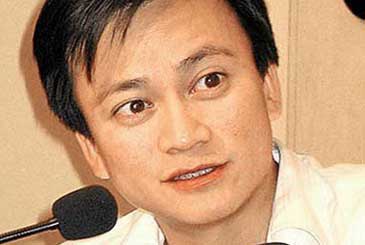Grass-roots candidates rally online
The nation has seen a wave of independent grass-roots candidates seeking to be elected as deputies to local people's congresses, a phenomenon propelled by the Internet and cautiously welcomed by analysts.
The trend started Wednesday with an entry by controversial blogger, writer and sports commentator Li Chengpeng, declaring he would run as an independent candidate in September for deputy to the people's congress of Wuhou district in Chengdu, Sichuan Province.
Within three hours of Li nominating himself, more than 3,000 Internet users forwarded the message, leaving more than 2,700 comments. Li's blog has more than 2.9 million followers.
After the announcement, a number of people also declared their online candidacy for deputy posts, most notably Wu Danhong, an associate professor at the China University of Political Sciences and Law, and Xiong Wei, an independent scholar.
"Before I studied the law, I wasn't aware that I had so many political rights," Li told the Guangzhou-based Yangcheng Evening News in a previous interview. "What a pity if I never used them."
Chinese law states that all citizens over 18 have the right to vote and be elected, with the exception of those who have been deprived of their political rights.
A deputy to people's congress at the level of county, autonomous prefecture, township, ethnic-minority township, district under a city and a city without district can be elected among local people.
Li told the Global Times that he sought to establish a 10-member advisory group made up by scholars, lawyers and celebrities. His supporters include director Feng Xiaogang and writer Han Han.
"I must win the election to boost others' confidence," Li told the Daily Sunshine newspaper in another interview. "The authorities will find out that I am no troublemaker, just an advisor."
Compared with conventional candidates, the independents are closer to the common people, Li argued.
"We're more natural and lively, without the background and framework of a government agency," he told the Shenzhen-based newspaper.
Candidates were normally nominated by local governments and voters organized to cast their ballots without even learning about each candidate, said Zhu Lijia, a public administration professor at the National School of Administration.
"The recent wave of self-nominated candidates is a good trend for democratic progress in China, as those independent candidates, who reached the largest number this year, will help to improve the country's electoral system," Zhu told the Global Times.
Li wrote on his blog that his political ambition sprouted after witnessing the annual sessions of the Chinese People's Political Consultative Conference and the National People's Congress (NPC) this year, when some proposals from NPC deputies had failed his expectations.
"This trend of citizens volunteering as lawmakers will bring a new atmosphere to the people's congress system," said Yu Jianrong, one of Li's campaign advisors. "People's participation in political life should be encouraged."
China's political culture does not encourage common people's participation in politics, which is one of the main reasons why most Chinese don't know how to use their political rights, said Yu, a director of the Institute of Rural Development at the Chinese Academy of Social Sciences in Beijing.
"The current phenomenon shows that people's awareness of their political rights is improving," he said.
The independent electoral trend had mostly happened online, other analysts warned, and so did not represent all Chinese people, with some nominations maybe just publicity seekers.
"New media such as blogs make it easier for public figures to draw attention, but solely relying on online support is not enough for an election campaign," Zhu said. "You have to get down to earth and find out what people are concerned about so as to win their hearts."
Li has a reputation among Internet users for making outspoken comments.
Attending a book fair in Shanghai in 2009, Li said only a handful of the writers attending the fair – including himself – wrote good books.
Li published a book in January criticizing illegal house demolition, arguing that the government bans pyramid selling yet will not stand against house removals, according to the Daily Sunshine newspaper.
Li is by no means the first candidate to run as an independent deputy for a local people's congress.
After four independent campaigns, Yao Lifa in 1998 was successfully elected as a deputy of people's congress in Qianjiang, Hubei Province.
 0
0 








Go to Forum >>0 Comments